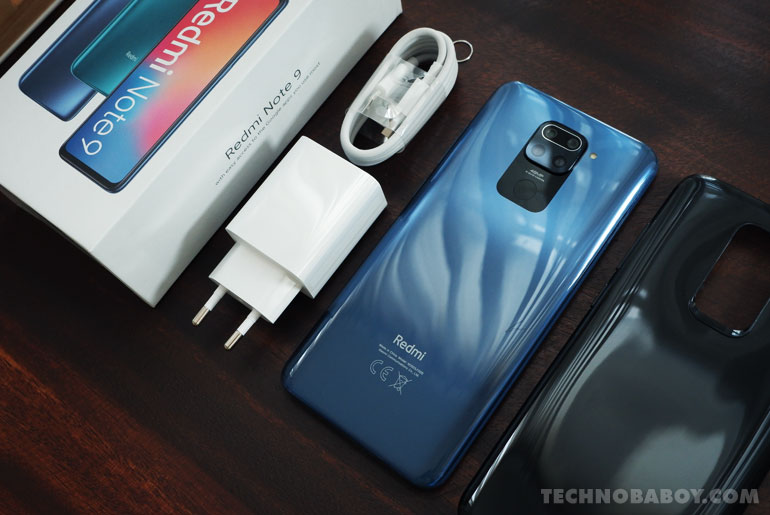Why your Internet speed is slower than expected - Android
Your service provider might have promised you a subscription with a fast Internet speed, but the actual connection you get is performing otherwise. More often than not, you experience slower access when you browse Facebook or stream the latest movies on Netflix. So, what gives? Check with a Speed Test If luck is on your […] More
This article, Why your Internet speed is slower than expected, was originally published at NoypiGeeks | Philippines Technology News, Reviews and How to's.
Your service provider might have promised you a subscription with a fast Internet speed, but the actual connection you get is performing otherwise. More often than not, you experience slower access when you browse Facebook or stream the latest movies on Netflix. So, what gives?
Check with a Speed Test
If luck is on your side, your connection goes faster than the advertised speed, but it’s sadly a happenstance few and far between. Ads by Internet Service Provider (ISP) boast this and that for their products and services but then tell you that your actual experience may differ.
If you think you’re not getting the promised bandwidth, a simple speed test—many of which are freely available online—can verify it for you. If you find the results disappointing, there are fortunately ways to boost or fix your Internet connection.
You’re using old hardware
Your Internet may be slow because of the devices you’re using. If you want to enjoy the speeds touted by the latest tech for high-speed data transmission, then you’ll obviously have to acquire compatible hardware.
After all, what good is your LTE, 4G or 5G broadband if you’re using a less capable smartphone or modem, whose best connectivity is just 3G, HSDPA or the even older EDGE protocol?
Reboot your modem and router
A power cycle can fix many things. It can fix loss of signal (LOS) problems. It can fix slower speeds, too.

You’re out of the coverage area
Consider that, especially with wireless connections, your distance from the network matters. As you move farther away from a cell tower, for instance, the signal that your device receives becomes weaker. Physical obstructions, such as metal constructs and walls, are also factors of deteriorating signals.
Your choice of software matters
It’s not just about hardware, but software too. To illustrate, Internet browsers function differently in terms of rendering pages. In some benchmark results, Google Chrome outpaces Microsoft Edge and Mozilla Firefox, which means Chrome fully displays a web page faster than the rest.
You may also want to disable automatic software updates that always do their thing right when you’re actively using your Internet access. Many anti-malware suites are guilty of this.
Avoid Internet peak hours
Even if you are at the center of the city, where your ISP has conveniently erected a cell tower, browsing the Internet can still be slow because of congestion. You can expect major metropolitan areas to have other people who are subscribed to the same provider and are simultaneously using the same connection as you as they go about with their online activities.
There are casual users who are online and spend time checking their friends on Twitter or Facebook. There are also heavy Internet users who eat away your speeds through their non-stop torrent downloads and online gaming.
That said, the time of day can indicate how fast your Internet speed is. Peak hours, or the time when most Internet users are online simultaneously, are expected to have slower speeds.

Your ISP is intentionally slowing you down
What your Internet service provider is not telling you (or may have hidden in the fine print) is the fact that they also implement certain throttling or intentional limiting of Internet bandwidth, which is apparently for the purpose of guaranteeing quality service to everyone.
Depending on the ISP, unlimited Internet usage doesn’t necessarily mean a consistent rate of bandwidth for the entire duration of your postpaid plan. After downloading a certain amount of data, for instance, you may be subject to a subsequent speed that’s much slower than what is promised.
If you’re a heavy downloader, you may also want to know that many providers restrict speeds on peer-to-peer file sharing. Some ISPs offer volume-based subscription: they’ll cut you off completely if you reached your data allocation for the day, and you only get your Internet access back the next day.
Try a VPN
Note the keyword try. Using a virtual private network or VPN does not always guarantee a faster Internet connection. More or often than not, using a VPN can cause a slower connection.
But if your ISP is actively throttling your network activities, a VPN can bypass your ISP’s bandwidth throttling and therefore increase your internet speed.
Enable your modem or router’s Quality of Service (QoS) feature
Without proper configuration, your router or modem (or a hybrid of the two) will not prioritize traffic that goes through them. This could get to a point where a large downloading activity can saturate your Internet connection, leaving barely enough resource for anything else.
To remedy this, you’ll need to enable and configure the QoS feature of your network devices. This feature will, for instance, allow you to give priority to your data for online gaming, messaging, or video calls, while lowering the speed for less important traffic such as heavy downloads.
Besides QoS, take some time configuring other features of your router/modem. Guest Wi-Fi access, malware protection, traffic meter, and bandwidth limiters are some relevant features that can help you monitor and control your Internet speed in your network.

Contact your ISP
Calling your ISP‘s customer service to complain is one way to solve your slow connection. But, as many netizens will attest, you will most likely receive a cock-and-bull story by trained call center representatives. Or, if you try your best to be as civil as possible, you may receive useful assistance.
Your ISP is doing maintenance
While customer representatives on the phone may give ambiguous or ridiculous reasons as to why your Internet speed is not as fast as you wanted, there are actually times that what they say is true.
Repairs and ongoing maintenance are common explanations, and they are nonetheless valid. It’s not that your ISP wants to screw you over; your provider just wants to improve their service in the long run.
The website, app, or online service itself is slow
Your ISP isn’t at fault if the servers or websites you’re sending data to or receiving data from are slow themselves. If other users are experiencing the same slowdown as you, and they’re on a different ISP, then it’s likely the website or online service is slow itself. The cause could be a distributed denial of service event, routine maintenance, or something else.
These are just some of the reasons why Internet service providers offer their services with speeds of up to, but not always, a certain rate. If you don’t like the speeds you’re experiencing, you can always switch to another provider, pay a bigger amount for faster bandwidths, or tweak your device settings.
This article, Why your Internet speed is slower than expected, was originally published at NoypiGeeks | Philippines Technology News, Reviews and How to's.
26/05/2020 05:00 PM
Xiaomi Mi Band 5 pictures show actual product, charger design
26/05/2020 06:19 AM
Redmi Note 9 unboxed, hands-on review, camera samples, AnTuTu benchmark
26/05/2020 08:00 AM
This lickable screen can recreate the flavor and taste of any food
26/05/2020 06:03 PM
Redmi Note 9 and Note 9 Pro prices in the Philippines revealed
26/05/2020 06:45 AM
Lenovo launches Intel and AMD-based IdeaPad Flex-series laptops
26/05/2020 10:42 AM
Xiaomi Mi Note 10 Lite launched in the Philippines, priced
26/05/2020 07:44 AM
- HEALTH
- Comics
- Libraries & Demo
- Sports Games
- Racing
- Photography
- Transportation
- Media & Video
- Sports
- Health & Fitness
- Weather
- Medical
- Cards & Casino
- Arcade & Action
- Personalization
- Social
- Communication
- Productivity
- Casual
- Shopping
- Tools
- Brain & Puzzle
- Business
- News & Magazines
- Finance
- Lifestyle
- Music & Audio
- Entertainment
- Travel & Local
- Books & Reference
- Education







